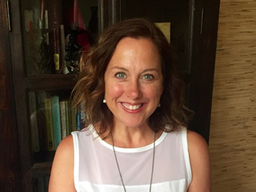Webb Lecture: The Republic of the Unlettered
Intellectual History and Enlightenment in the Spanish Empire
Location
Library and Gallery, Albin O. Kuhn
Date & Time
October 21, 2015, 4:00 pm – 5:00 pm
Description
Webb Lecture
The Republic of the Unlettered: Intellectual History, the Enlightenment, and the Law in the Spanish Empire
Bianca Premo, Associate Professor of History, Florida International University
This
talk explores what it means to write an intellectual history of the
Enlightenment among people who could not read or write—namely enslaved
people, women, and the indigenous inhabitants of the colonial Spanish
America who sued in royal courts during the eighteenth century.
Intellectual
historians have been content to conceive of the Enlightenment as
primarily a movement among literate European men, while scholars with a
political commitment to oppressed groups see it as a the origin of
modern forms of racism, exclusion and imperialism. Yet Primo's research
demonstrates that the Enlightenment occurred in the Spanish colonies of
Mexico and Peru at the same time as in Europe, and that it had a
particular vibrancy in the realm of law. What is more ordinary,
unlettered imperial subjects including slaves, Indians and ordinary
women were its practitioners. Such a discovery raises important
questions about how we should conceive of “intellectual history;” the
origins of modern Western thought, and the history of people who could
not author their own history.
Bio:
Bianca
Premo is associate professor of Latin American history at Florida
International University. She has written on diverse topics including
the history of childhood in colonial Peru, native women in the Andes and
Mexico, slavery, and jurisprudence and legal thought in the Spanish
empire. Her latest book project is entitled The Enlightenment on Trial: Ordinary Litigation and Colonialism in the Spanish Empire, and it is the product of research in over a dozen archives in Spain, Mexico and Peru.
Sponsored by the History Department and the Dresher Center for the Humanities.
Tags:
